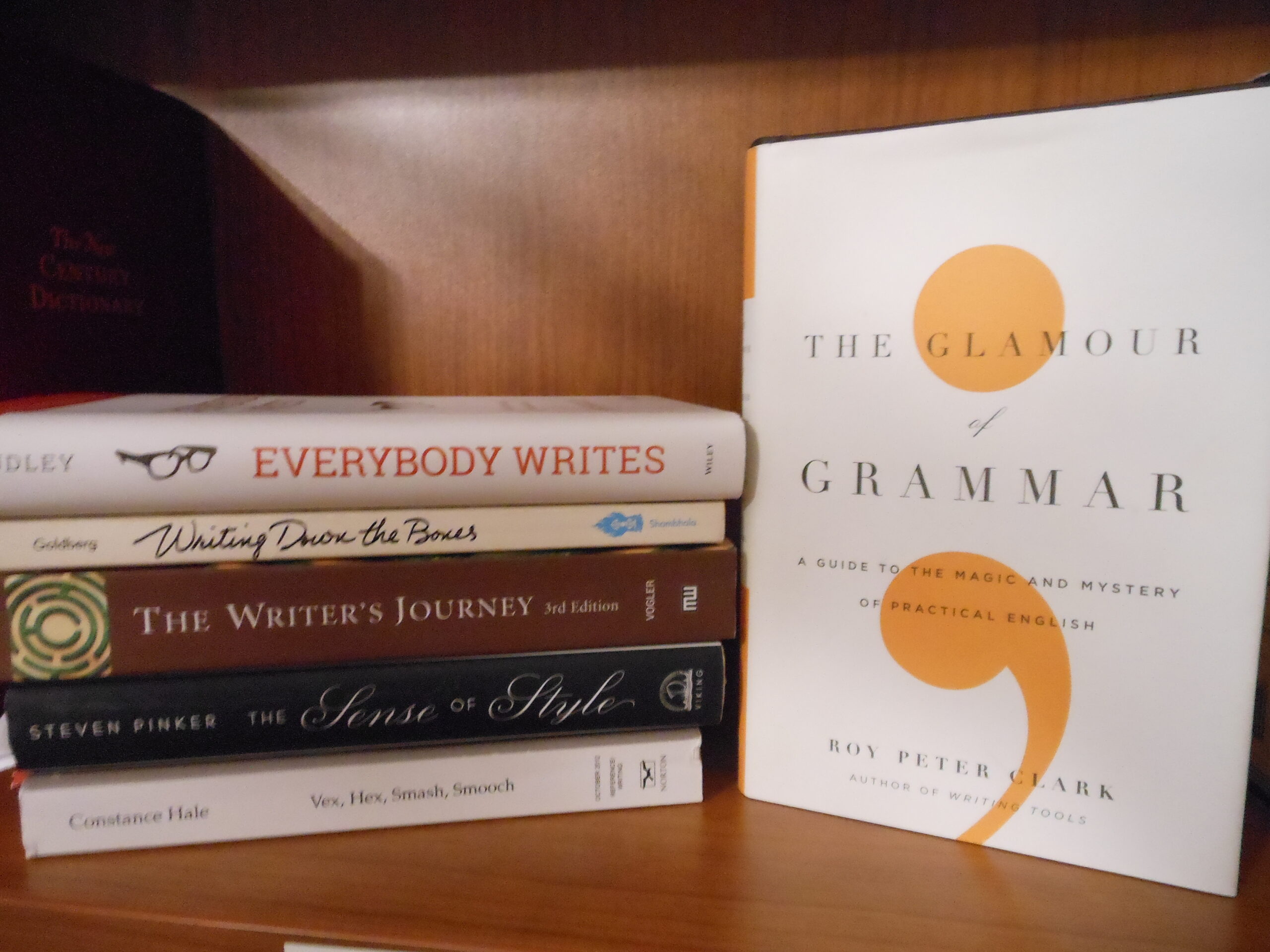Recently a friend asked me what books changed my writing and editing the most. She wanted a reading list to improve her skills. Writing and editing books are always a fun topic, and narrowing down choices is never simple. What speaks to one person may be incomprehensible to another. But I gave it a go and sent her those that influenced me the most. They can influence you, too!
Everybody Writes by Ann Handley
This one is for the business writers, especially the marketers, in the room. The rise of content marketing has meant more business professionals need to write for the public as part of their job or as a way to promote themselves. Handley writes for these folks—the ones who are unsure if they can call themselves writers or who just feel overwhelmed at the prospect. She instills confidence with no-nonsense advice, giving you lots of tips on how to approach writing, how to improve your writing, how to write for particular platforms, and more.
And Handley encourages you not to tackle writing alone. She encourages both writing buddies and editors. Both will help keep you on task and improve your work. It’s a team effort. Of course, I may be biased on this point. (I’m more biased than you think: I worked as a copyeditor for Ann a lifetime ago. She was a great boss and teacher then; she’s only gotten better as time has gone on.) Truly, though, Everybody Writes is a detailed, helpful roadmap for business writers.
Writing Down the Bones by Natalie Goldberg
Writing Down the Bones is a classic for getting words onto the page. I read this way back in college. Goldberg talks about the practice of writing. She writes about the obstacles and the pitfalls. Writing is a practice, and Goldberg wants you to have an active writing practice. Her chapters are short but engaging.
The one that has never left my mind is “Composting.” In it, she asserts that our experiences inform our writing but that they take time to filter into our subconsciousness and become a rich resource, much like how veggie scraps and yard clippings can eventually become soil overflowing with nutrients:
Understanding this process cultivates patience and produces less anxiety. We aren’t running everything, not even the writing we do. At the same time, we must keep practicing. It is not an excuse to not write and sit on the couch eating bonbons. We must continue to work the compost pile, enriching it and making it fertile so that something beautiful may bloom and so that our writing muscles are in good shape to ride the universe when it moves through us.
Inspiring, no?
The Writer’s Journey by Christopher Vogler
Christopher Vogler’s book is excellent for learning mythic structure (aka, the hero’s journey). The hero’s journey, a story structure popularized by Joseph Campbell, outlines a hero’s adventure: the important points they pass through and how they grow along the way. Think Luke Skywalker.
Vogler digs deep into the hero’s journey as used by the movie industry. He uses lots (and lots!) of examples to teach readers about writing the hero’s journey. Written for screenwriters, this book is useful for anyone who wants to utilize this structure in their storytelling, whether fiction or nonfiction. It even shows up in content marketing, with your client playing the role of hero.

The Glamour of Grammar by Roy Peter Clark
I love Roy Peter Clark’s advice. The man is a master teacher, and The Glamour of Grammar is brilliant for learning writing mechanics. I snapped this one up as soon as it came out and immediately started highlighting and annotating. In a section on how to use English’s short words, he writes:
When a story is powerful, keep the language spare. In English, spare language depends on short words, short sentences, and short paragraphs at the point of highest emotion. (p.53)
Clark provides lots of easily digestible lessons and wraps up his chapters with “Keepsakes,” the key lessons of the chapter, which makes scanning the book later for reminders easy.
Sense of Style by Steven Pinker
Steven Pinker’s approach to writing mechanics come from a different direction: How does good writing work? How do our brains process the written word? I like that although he advises active writing, turning nominals back into verbs and using active voice, he explains that nominals and passive voice have a place in our language. They wouldn’t still be part of our language if we didn’t need them. The trick is knowing when you need them.
My favorite chapter is on the curse of knowledge: “a difficulty in imagining what it is like for someone else not to know something that you know”; “the better you know something, the less you remember about how hard it was to learn (p. 59 and 61). Understanding this concept has help me not only in my own writing but in working with my clients on their writing. We can step back together to consider what might live in the author’s head that readers need on the page.
Vex, Hex, Smash, Smooch by Constance Hale
Verbs are the action in the sentence.
Verbs hook you into the sentence and pull you to the end.
While both these sentences are true, be honest: it was the second one that grabbed you, wasn’t it? Couldn’t you almost see the hook and a fishing line moving across your vision, maybe with a wiggly fish on the end of the hook?
Hale’s book goes into loving detail about verbs and how to tap their power, all in a readable way. Vex sections cover the confusing things about verbs. Hex sections cover myths (e.g., don’t split the infinitive). Smash sections are filled with bad habits to jettison from your writing. And Smooch section are all about the love: examples of good writing and verbs role in it. It’s a great book to jump in and out of.
The books here just scratch the surface. I have more writing, language, and editing books on my shelves than I have time to read. But these have stayed with me and influenced both my writing and my editing.
If these books don’t do it for you, think about what your needs are as a writer. What gaps do you have in your knowledge? What obstacles do you often run into? What do you want to learn to do or learn to do better? There’s bound to be a book out there for you.



Many thanks for this list, Erin. As a fellow editor and writer, I know most of them–but not all and relish the thought of making their acquaintance. Of the ones I’ve read, the only one that rubbed me the wrong way was Pinker’s; this was for the mildly quibbly (new word!) reason that he opted to use his spouse’s writing to illustrate some of his points. It wasn’t that I found that choice unethical, simply that I was underwhelmed by those examples from a linguistic point of view. But perhaps I need to go back and read the whole book–I was so put off that I only made it through the first chapter.
Thanks again–off to add your recommendations to my to-read list.